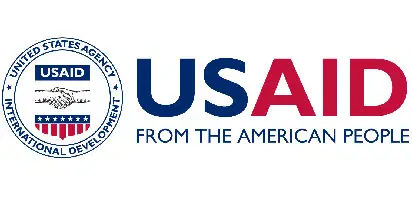By Chinasaokwu Helen Okoro
The Federal government has been charged to embrace the transformative potential of Artificial Intelligence, AI, in Nigeria’s healthcare sector by utilising the technology to accurately make informed decisions and improve healthcare outcomes in the country.
The Mission Director of USAID Nigeria, Melissa Jones, who gave the charge in Lagos during the Global Inclusivity and AI: Africa, GIAA, Conference hosted by the US Department of State in partnership with the Federal Ministry of Communications, Innovation and Digital Economy, suggested that business professionals, rather than doctors, should be appointed to key positions in the Ministry of Health to bring the much-needed business acumen to the sector and enhance its efficiency.
Speaking at the breakout session titled: Using AI for Healthcare Innovation, USAID Mission Director, Jones who is also the AI Division Director at the US Embassy, emphasized the urgent need for Nigeria to prioritise health insurance utilizing population-based data and AI to accurately calculate healthcare costs.
Her words, “Nigeria has the potential to transform its healthcare sector through strategic investments in health insurance, technology, and human capital. By embracing innovation and learning from global best practices, Nigeria can improve health outcomes and build a stronger foundation for its future.
“AI is already here in Nigeria and is revolutionizing healthcare. By understanding the real-time costs of various interventions, the government can make informed decisions and improve healthcare quality.
“The first thing Nigeria should do is focus on the role of health insurance using population-based data, you can cost it well using AI. You know what every single intervention, whether it’s HIV care, whether it’s real nail care, labour delivery, you know those costs. And you know real-time costs. Success, all success. When you can cost health insurance and do it well, you’re able to have huge impact on the quality and outcomes of health.”
Jones highlighted that the public sector and private sector must work together towards harnessing the benefits of the AI revolution.
“What the private sector can do or what private providers should start doing is stop trying to deliver health services. What they should be doing is actually getting into the business of AI, because ultimately, there are a number of providers, health providers, that don’t even know how to read their own data.
“Nigeria is in a big problem because the majority of your population is under age of 24, the issues and the burden of health happens in the older populations. You are spending way too much money on healthcare and you’re doing that because you’re inefficient. That is the reality.
If you look at a manufacturer like Emzor or Swiss Pharma, you look at those phenomenal companies, but they have to go for pre-qualification for their international standards. When they’re able to use AI, they can actually speed up their qualification process in a way that allows them to be able to stop taking two years, or eight years, that can be moved to 18 months.
“So the overall goal for Nigeria is for Nigeria to be the hub of production of West Africa in pharmaceuticals. Right now, Swiss Pharma just got pre-qualified for malaria medicines. That and that ability of production can actually be able to provide medicine for the entire West Africa region.“
Those are the things that we want to use AI for too, to move those things along because ultimately, you get data from other countries, you’re able to look at the space, the field, and if you can do that in a short period of time, you can achieve that too.*Further Jones said, “Health and to be able to deliver quality healthcare relies on our ability to understand the analytics and predictive analytics are here already in this country.
The same way that we can predict climate, we can predict what’s happening in the population within health.“The market is going to drive this, and consumers will drive this process.
But be clear, a lot of people in Nigeria who have means, go and seek services outside of this country and that is a problem. If you want to be able to do things well, you need to stay in Nigeria. “Nigeria has capacity, it has the technology, it has the talent, it has all of that, but let us be clear, COVID has told us a lot, but what it specifically told is that health is the foundation to everything.
You cannot have an economy if you have a pandemic. You cannot be able to have your children educated and go to school if you have a pandemic.”On the potential of AI in healthcare, she argued,
“Time’s is money, and when you’re able to streamline processes and ensure that you’re able to address things for the antimicrobial resistance to new deadly pandemic diseases, this is where AI can be most effective.
“I would say right now, 25 percent of all the deaths in the world are related to infectious diseases. We will transform infectious diseases significantly by the use of AI. That is the truth. What we need to know is how do we deal with non-communicable diseases over time. Lots of AI work is going on right now in cancer research, but we can do more.
“To understand these patterns, to be able to have addictive analytics, all of these are important into the health sector. And unless we capture it, and I mean when I say we, I mean the private sector and the public sector working hand in hand, then we will miss out.


